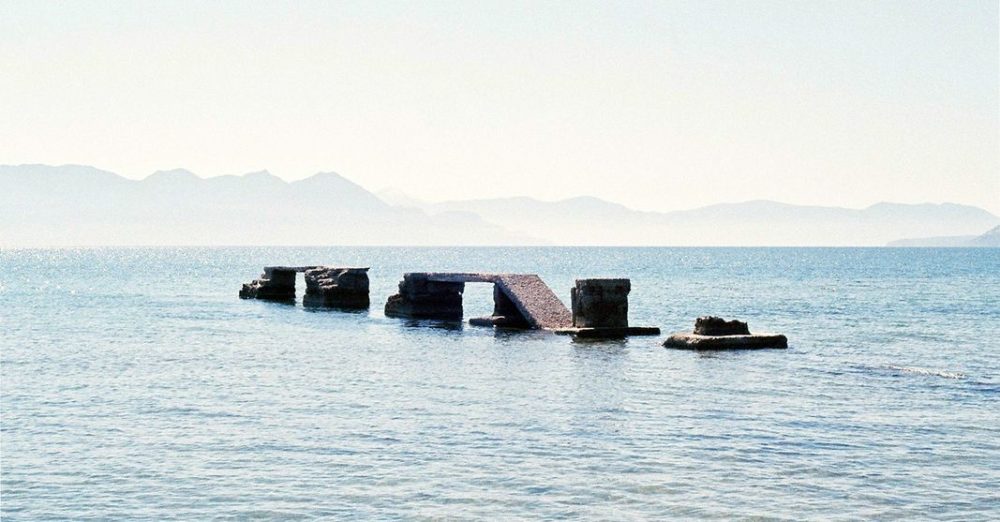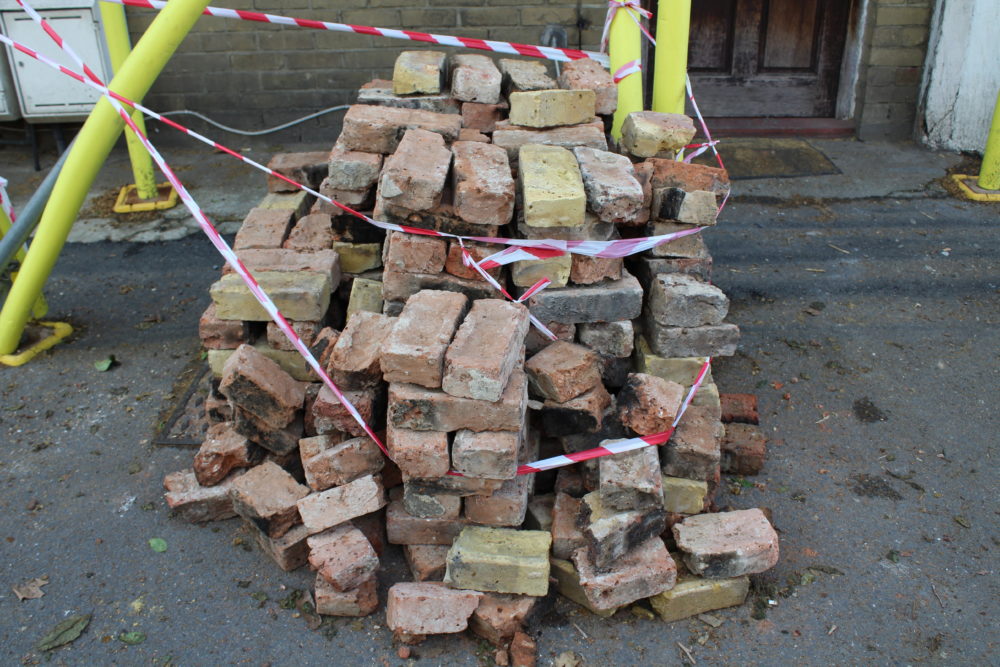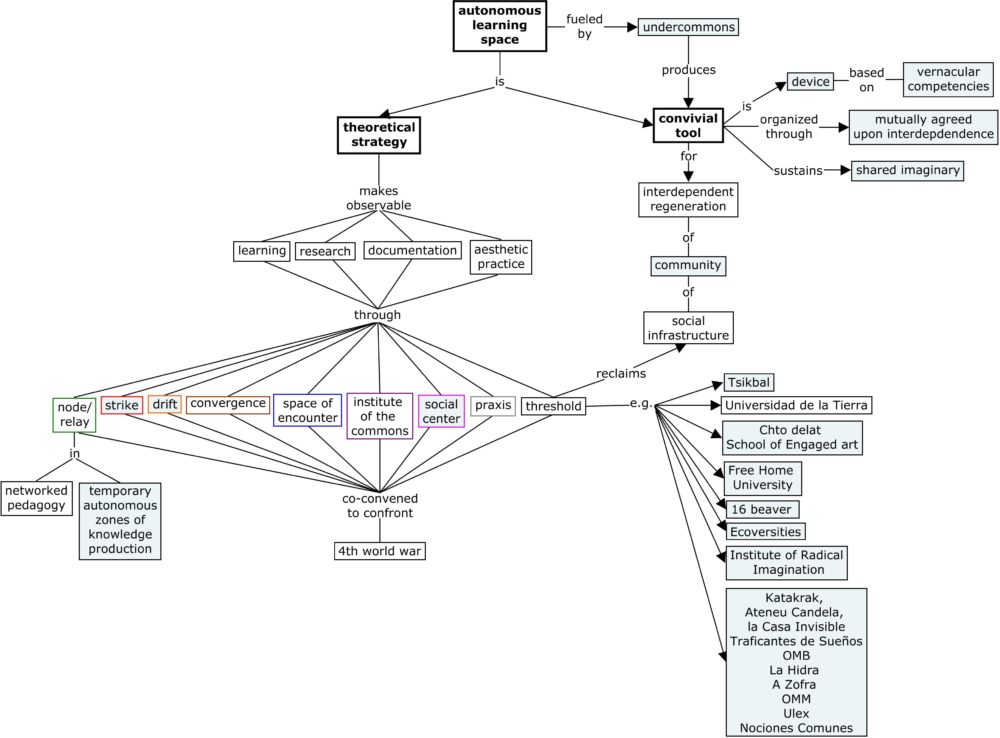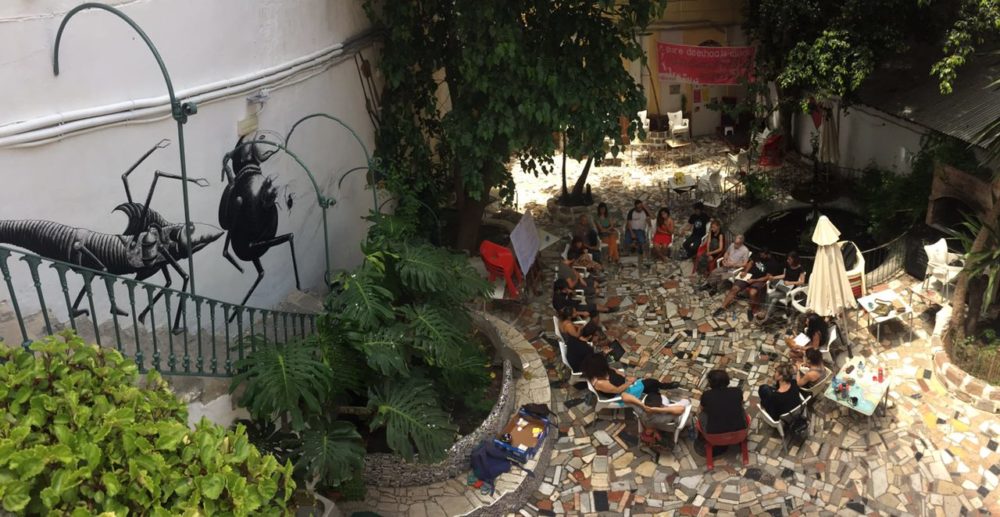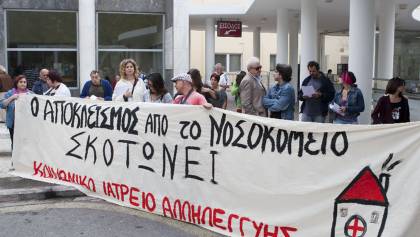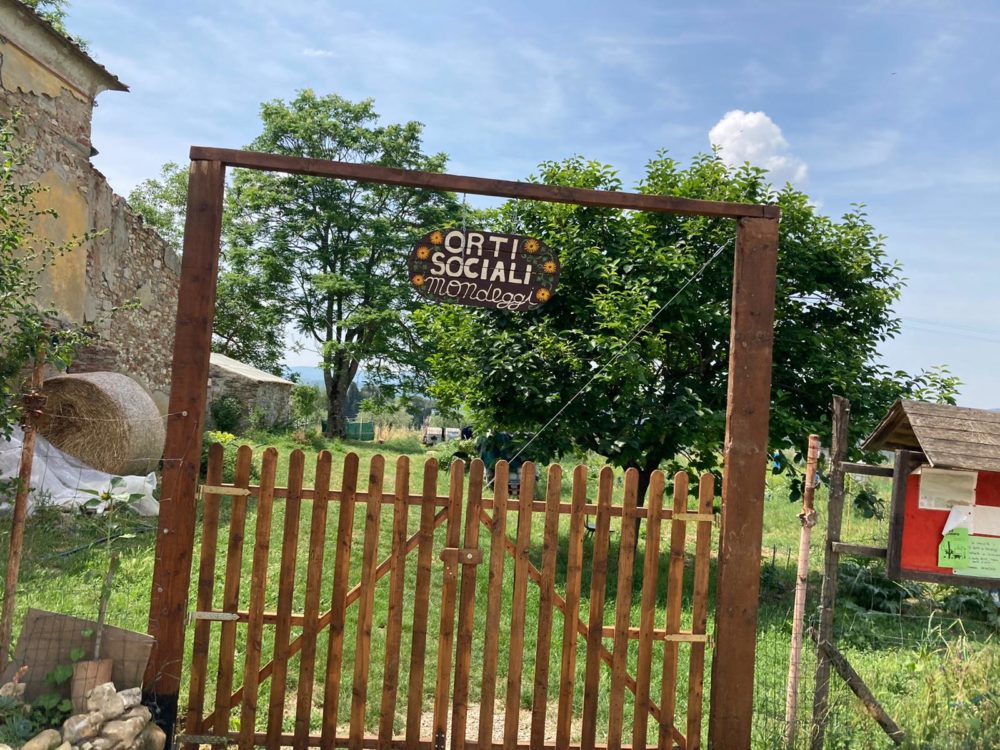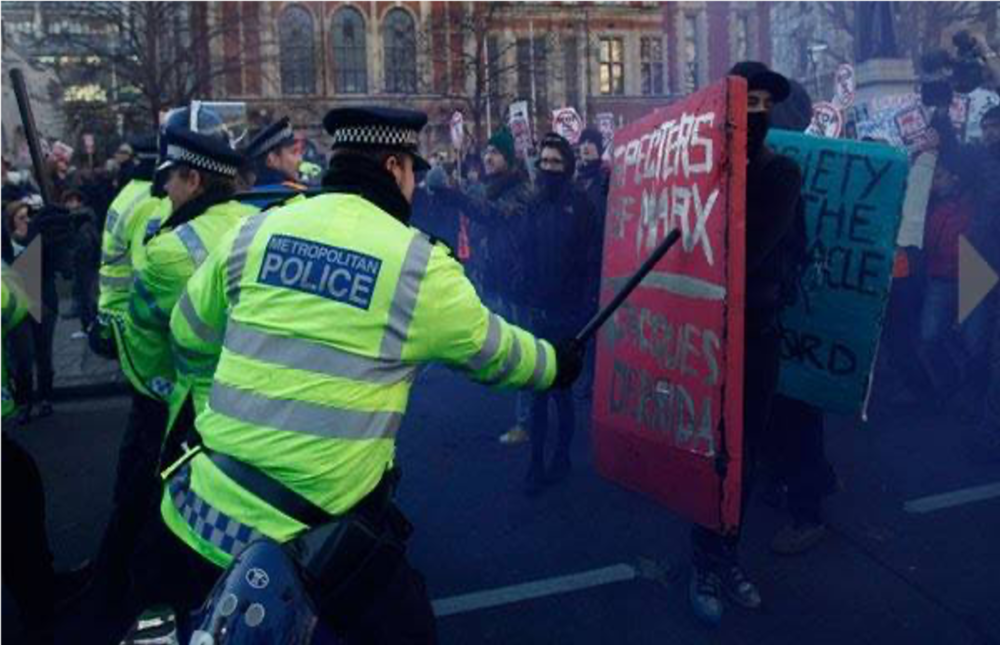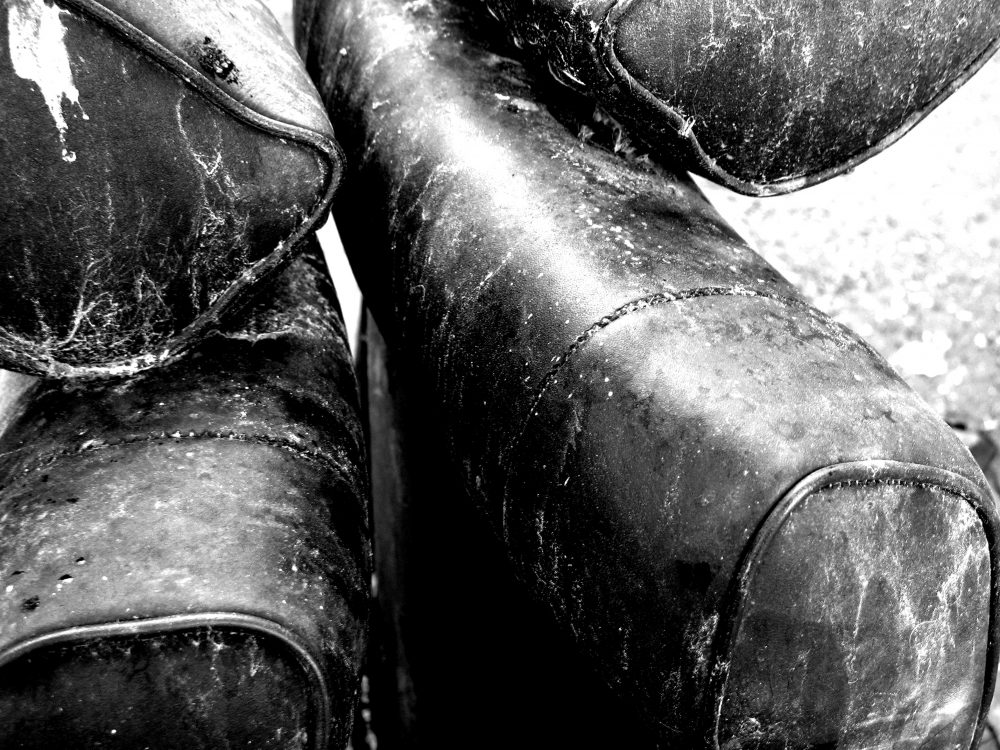What could processes of self-organizing and collective making look like in the current landscape? In what ways might they affect public processes of social improvisation? How might such forms of “instituting” give rise to other forms of institutions? Inviting theoretical as well as practical approaches, this edition of the New Alphabet School studies “instituting” as an incomplete, fugitive and thus continuous process that constantly seeks out ways to interact with evolving strictures of the here and now. In their book Now (2017) the Invisible Committee argues that “in reality what we need are not institutions but forms… Everything that lives is only forms and interactions of forms”. How to begin to study this process, this evolving mutation and redefinition of forms as social improvisation, inseparable from emergent imaginings and imaginaries of a livable life?
With contributions by Fred Moten & Stefano Harney; ruangrupa (Reza Afisina, Iswanto Hartono, Farid Rakun and Andrea Linnenkohl) and Adania Shibli
With Workshops by Associação das Prostitutas de Minas Gerais – APROSMIG & melke; Berit Fischer; diffrakt, Simon Fleury, Sam Nightingale, Chara Stergiou & Aslı Uludağ , Co-Hab Athens & Constantina Theodorou and SAVVY Contemporary (Lynhan Balatbat-Helbock, Sagal Farah, Kelly Krugman)
Curated by Gigi Argyropoulou and Kostas Tzimoulis in cooperation with Eight/Το Οχτώ, Goethe-Institut Athens and the Minor Universality Project by Saarland University
With contributions by Fred Moten & Stefano Harney; ruangrupa (Reza Afisina, Iswanto Hartono, Farid Rakun and Andrea Linnenkohl) and Adania Shibli
See full program on hkw.de
In this essay, Gigi Argyropoulou, co-curator and blog section editor of the New Alphabet School’s #Instituting edition, proposes instituting as a verb, as a process that both refuses and flees from institutionalisation and structuralisation as a potentially critical methodology in curating, art making and organising that includes and thinks through both forms and deformations. Always in close relation to its opposite de-instituting. Instituting as a process that refuses to settle into one structure, one form, one building. As a practice of continuously making places together with others, improvisations of form and context that reconsider the specificities of a here and now and remain dependent upon multiple and repeated invisible, illegible and incomprehensible plottings.
read more“Against Institutionalisation” takes up Ivan Illich’s critical account of the effects of mathematisation and algorithmization on the I-Thou relationship, as described in an interview with David Cayley from the late 1990s. It asks about the relationship between the institution and the city, and asks whether we can escape the dead hand of bureaucracy in favour of conviviality and a kind of graceful playful that would involve an anarchic relation to life in the present.
read moreIn his essay, convivial researcher Manuel Callahan approaches autonomous learning spaces from theoretical and practical angles. He introduces everyday spaces that are animated by conviviality and a dynamic, collective energy of interdependent community regeneration uninhibited by capitalist command and discipline.
read moreIn the multiple crises we have experienced in recent years, the actors of the cultural field often reduced themselves to an orderly retreat of progressive forces, to the business of managing cultural programmes for mainstream publics and bourgeois elites, to rescuing their shares of the cake, to obediently executing ever new austerities and new normalities. Yet, as the crisis is a multiple one ― economic, ecological, corporeal, affective, a crisis of institutions and most of all a crisis of subjectivation ― it also produces ruptures in the modulating continuum of services, cuts and practical constraints, at best desiring machines, incomplete complicities, and monsters within and beyond actors and institutions in the cultural field, who start to think about an altered function in relation to socialities, geopolitics, and histories.
read moreIn this conversation between grassroots activist and researcher Christos Giovanopoulos and political theorist Alexandros Kioupkiolis, a mapping of social movements in Greece and Southern Europe since 2008 is created by way of an analysis of different practices of solidarity, protest and self-organization. Through a discussion of specific examples and transformations of grassroots practices they elaborate on hegemony, collectivity and infrastructures of commoning.
read moreCity Plaza, an empty hotel in the center of Athens, was squatted in April 2016 by solidarity groups and transformed into a self-organized refugee shelter. City Plaza was running for more than 3 years and offered a safe home to more than 2.500 refugees. It also became a symbol of resistance against borders and racism in the everyday life of a transnational communities of struggle. In this paper, Olga Lafazani attempts to grasp the multiple spatialities of City Plaza: from the structure of the building and the social characteristics of the neighborhood, to the ways everyday life was organized and offered transnational solidarity, from the city scale to the resistance against the policies of illegalization of migration, from the body to the globe.
read moreWhen movements encounter matter as a strategic field of action, a new idea of autonomy emerges. The autonomy of the twenty-first century comes from the resurgence of the dense network of interdependencies, from the end of essentialist divisions between human and nonhuman, from the ability to create translocal infrastructures able to support, defend and remake alternative forms of existence. Following the example of an Italian network of farmers called Genuino Clandestino, in this text food movements and agro-ecological farming are addressed as immediate forms of politics.
read moreWhat would it mean to think critically of the institution without evading its aporias? How to engage with and care for institutions while not being at home in them? In this text Athena Athanasiou develops a performative rearticulation of institutions as indeterminate sites of conflict and struggle. She argues that to think and work with/in the institution against its biopolitical economy of normalization and disposability involves acting, in Jacques Derrida’s terms, “as if it were possible”. This “as if” defines a mode of keeping the question of the institution always open as an interminably aporetic call for another politics of simultaneous performing the institution and resisting the institution. In this sense, defending the public institution from neoliberal attacks is about defending not what already exists but rather what is yet to come.
read more
In 2018 Stefano Harney & Fred Moten’s friend Dr. Romi Crawford of the Art Institute of Chicago invited them to contribute to a consideration of the Chicago’s famous mural, the Wall of Respect. Dr. Crawford had already been working on keeping the memory of the Wall of Respect alive, and doing so by applying a kind of community-rooted analysis that is in keeping with the spirit of the collective of artists – the Organization of Black American Culture (OBAC) – who initiated the mural. More about the history of the mural can be found here. Moten and Harney take the mural as a point of departure to reflect on black (ante)heroism.
read more